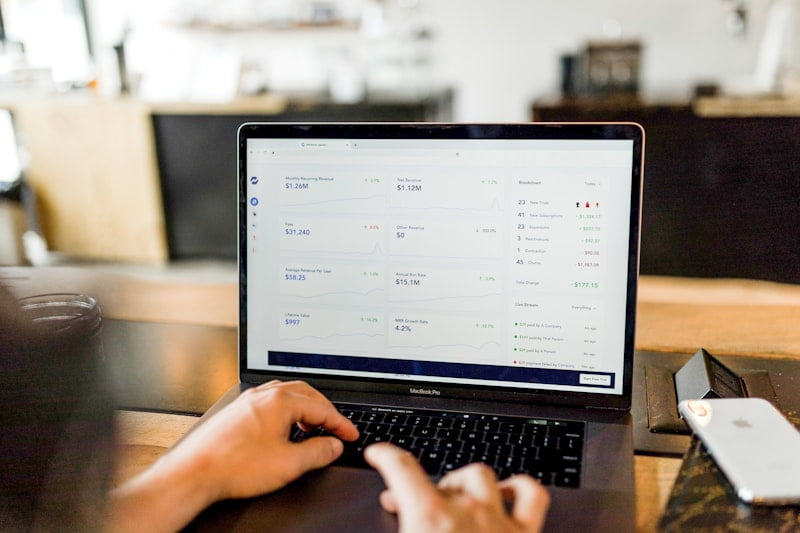How Do You Invest in Sustainable Agriculture?

Another avenue is investing in agricultural technology, often referred to as agtech. This includes innovations like precision farming technologies, vertical farming systems, and biological crop protection methods. These technologies not only improve efficiency and yield but also reduce the environmental impact of farming.
Impact investing in sustainable agriculture is another approach gaining traction. Impact investors actively seek projects and companies that generate positive social and environmental impacts alongside financial returns. This could involve investing in community-supported agriculture (CSA) programs, which connect consumers directly with local farmers practicing sustainable methods.
Furthermore, sustainable agriculture funds and ETFs (exchange-traded funds) are becoming more accessible. These funds typically invest in companies that adhere to sustainable practices across the agriculture value chain, from farm to fork. They offer diversification and the opportunity to align your investment portfolio with your values.
For those looking to invest on a smaller scale, supporting sustainable agriculture through crowdfunding platforms can be a viable option. These platforms allow individuals to invest in specific projects or farms that promote sustainable practices, often offering rewards or returns based on the project’s success.
Ultimately, investing in sustainable agriculture goes beyond financial returns; it’s about fostering a resilient and sustainable food system for future generations. Whether you choose to invest directly in farmland, technology, impact funds, or community initiatives, your investment can make a meaningful difference in promoting sustainable practices and securing our food future.
Green Returns: Exploring Profitable Investments in Sustainable Agriculture
Sustainable agriculture is more than just a trend; it’s a pathway towards a healthier planet and profitable investments. Imagine putting your money where your values are—supporting practices that preserve natural resources, promote biodiversity, and reduce carbon footprint. It’s like planting seeds that grow into both financial gains and ecological benefits.
Investing in sustainable agriculture means backing farms and businesses that prioritize methods like organic farming, permaculture, and agroforestry. These practices not only yield high-quality produce but also help mitigate climate change by sequestering carbon dioxide in the soil and reducing greenhouse gas emissions.
But how exactly can sustainable agriculture be profitable? It’s simple economics intertwined with environmental stewardship. As consumer demand for organic and sustainably produced food rises, so does the market value. Businesses that embrace these practices often enjoy higher profit margins due to reduced input costs and premium pricing for their eco-friendly products.

Picture this: your investment not only supports a farm that grows organic vegetables but also powers a community with renewable energy sourced from agricultural waste. It’s a cycle of sustainability where every dollar invested contributes to a healthier environment and a thriving economy.
So, whether you’re a seasoned investor looking to diversify your portfolio or someone passionate about making a positive impact, exploring sustainable agriculture investments can be both financially rewarding and environmentally enriching. Join the movement towards greener returns and discover a world where profits grow alongside a sustainable future.
From Farm to Portfolio: Strategies for Investing in Sustainable Agriculture
Unlike traditional farming methods that often deplete soil health and rely heavily on chemicals, sustainable agriculture prioritizes practices that preserve the environment. These include organic farming, crop rotation, and integrated pest management. Such methods not only yield healthier crops but also promote biodiversity and reduce carbon footprint.
As an investor, entering this arena requires a strategic approach. Start by researching companies and funds that prioritize sustainable agriculture. Look for those committed to ethical farming practices and environmental stewardship. These entities often integrate modern technology with traditional wisdom, ensuring efficiency without compromising on sustainability.
Diversification is key. Just as crops benefit from diverse ecosystems, your investment portfolio can thrive by diversifying across various facets of sustainable agriculture. Consider investing in renewable energy solutions for farms, precision agriculture technologies, or even sustainable food distribution networks. Each sector plays a crucial role in supporting a resilient and eco-friendly food system.
The impact of sustainable agriculture goes beyond financial gains. It addresses global challenges such as food security and climate change mitigation. By investing in sustainable agriculture, you contribute to a future where farming sustains both people and the planet. It’s an investment in resilience, ensuring that future generations can enjoy the bounty of our earth without compromising its resources.
Future Harvests: The Financial Benefits of Sustainable Agriculture Investments
Sustainable agriculture practices emphasize soil health, water management, and biodiversity conservation. By using techniques like crop rotation, organic fertilizers, and integrated pest management, farmers can enhance soil fertility without depleting natural resources. This not only boosts crop yields in the long term but also reduces production costs associated with chemical inputs.
Financially, investing in sustainable agriculture yields impressive returns. Beyond immediate crop yields, sustainable practices can lead to improved land productivity over successive seasons. Healthy soils retain moisture better, reducing irrigation needs and water costs. Moreover, by reducing dependence on synthetic fertilizers and pesticides, farmers cut down on input expenses, thereby improving profit margins.
The benefits extend beyond the farm gate. Sustainable agriculture fosters resilience against climate shocks, ensuring stable food production amidst changing weather patterns. This stability mitigates risks for investors and supports long-term agricultural productivity.
From an investor’s perspective, sustainable agriculture offers diversified opportunities. Whether through direct investment in farms adopting sustainable practices or through financial instruments supporting agricultural innovation, there are numerous avenues to participate in this burgeoning sector. Institutions and individuals alike can align their financial goals with environmental stewardship, leveraging sustainable agriculture as a pathway to both profit and planet preservation.
In essence, sustainable agriculture isn’t just about what we grow but how we grow it. It represents a paradigm shift towards resilient, environmentally responsible farming practices that promise abundant future harvests, both in terms of food security and financial returns. As we look ahead, investing in sustainable agriculture isn’t just an option; it’s a necessity for a sustainable future.
Eco-Friendly ROI: Where and How to Invest in Sustainable Farming
One promising avenue is precision agriculture. By leveraging cutting-edge technology like IoT sensors and AI-powered analytics, farmers can optimize resource allocation—water, fertilizers, and pesticides—down to the square meter. This not only boosts yields but also minimizes environmental impact, making it a win-win for both the planet and profit margins.
Another frontier lies in organic farming. With consumer demand for organic produce steadily rising, investing in certified organic farms can yield substantial returns. Organic methods eschew synthetic chemicals, relying instead on natural fertilizers and pest control, which enhances soil health and biodiversity while commanding premium prices in the market.
Investors keen on long-term sustainability should also consider regenerative agriculture. This holistic approach focuses on restoring soil health, biodiversity, and ecosystem services. By mimicking natural processes, such as crop rotation and cover cropping, regenerative practices sequester carbon and improve water retention, fostering resilient farms capable of weathering environmental challenges.
Furthermore, aquaponics and hydroponics represent innovative solutions at the intersection of sustainability and technology. These soil-less farming techniques use significantly less water than traditional methods and can be practiced in urban settings, reducing transportation costs and food miles.
Ultimately, investing in sustainable farming isn’t just about financial returns; it’s about securing a greener, more resilient future. By supporting farms that prioritize environmental stewardship and adopting technologies that maximize efficiency, investors can reap rewards while contributing to a healthier planet for generations to come.
Growing Green: Investment Opportunities in Sustainable Agriculture
One significant area of interest within sustainable agriculture is the growth of organic farming. Organic farming avoids synthetic pesticides and fertilizers, focusing instead on natural methods like crop rotation and composting to enhance soil fertility and manage pests. This not only reduces chemical runoff into water sources but also produces healthier crops that command premium prices in the market.
Another promising avenue is precision agriculture, leveraging technology such as GPS, sensors, and drones to optimize resource use. By precisely targeting inputs like water and nutrients, farmers can minimize waste and increase yields sustainably. This approach not only conserves resources but also boosts profitability by reducing production costs.

Furthermore, sustainable agriculture encourages biodiversity conservation and natural habitat restoration. Practices like agroforestry, which combines trees and crops on the same land, enhance biodiversity, improve soil health, and sequester carbon dioxide from the atmosphere.
Sustainable agriculture presents a compelling case for investors looking to align profitability with environmental stewardship. As consumer demand for sustainably produced goods grows, so too will the opportunities for profitable investments in this sector.
Sow and Reap: Making Money While Supporting Sustainable Farming Practices
Picture yourself investing in a farm that prioritizes organic methods and biodiversity. Every seed planted isn’t just a potential crop; it’s a commitment to healthier soil, cleaner waterways, and reduced carbon footprints. Consumers today are increasingly drawn to products that align with their values, seeking out foods grown sustainably without harmful chemicals or practices that degrade the land.
As you delve deeper into this realm, you’ll discover that sustainable farming isn’t just a trend—it’s a movement gaining momentum worldwide. Farmers who embrace these practices aren’t just producing food; they’re nurturing ecosystems where pollinators thrive, biodiversity flourishes, and communities benefit from healthier lifestyles.
But how does this relate to making money? Think of sustainable farming as an investment in the future. By adopting these methods, farmers often find themselves part of networks that value their commitment to environmental stewardship. This can lead to partnerships with retailers who specialize in organic products or direct sales to consumers who prioritize sustainability.
Moreover, the market for sustainably grown produce continues to expand as more people become aware of the impact of their food choices. Restaurants, grocery stores, and even meal kit services are eager to source ingredients that meet these criteria, creating opportunities for farmers who are willing to embrace sustainable practices.
In essence, sowing the seeds of sustainability doesn’t just yield crops—it yields a future where farming is both economically viable and ecologically responsible. It’s about reaping the rewards of a market that values transparency, quality, and a commitment to the planet. So, as you consider the potential of sustainable farming, ask yourself: are you ready to sow the seeds of change and reap the benefits for yourself and the world around you?
The Green Revolution: Investing Wisely in Sustainable Agriculture
The Green Revolution has ushered in a new era of agricultural practices aimed at sustainability and long-term environmental health. Investing wisely in sustainable agriculture not only benefits the planet but also ensures food security for future generations. Sustainable agriculture focuses on techniques that minimize environmental impact while maximizing productivity.
Imagine a farming landscape where innovative practices like organic farming, crop rotation, and integrated pest management flourish. These methods not only preserve soil fertility but also reduce reliance on harmful pesticides and synthetic fertilizers. Farmers embracing sustainable agriculture are akin to stewards of the land, nurturing it for future harvests.
In today’s world, where climate change poses significant challenges to traditional farming methods, sustainable agriculture emerges as a beacon of hope. It encourages resilience against extreme weather events and helps mitigate greenhouse gas emissions through practices like agroforestry and conservation tillage.
But what does it mean to invest wisely in sustainable agriculture? It goes beyond financial considerations; it involves investing in the future of our planet. By supporting initiatives that promote sustainable farming practices, investors contribute to building a more resilient food system. This not only safeguards biodiversity but also ensures equitable access to nutritious food for all.
Just as a seed grows into a mighty tree, sustainable agriculture nurtures communities and economies. It fosters innovation in agribusiness, creating opportunities for smallholders and large-scale farmers alike to thrive in harmony with nature. The ripple effect of investing in sustainable agriculture extends far beyond the fields, shaping a healthier, greener future for generations to come.
Investing wisely in sustainable agriculture is not just a choice; it’s a commitment to sustainability, resilience, and innovation. It’s about sowing the seeds of change today for a harvest of prosperity tomorrow. Joining hands in this endeavor ensures that agriculture continues to feed the world while preserving the planet’s precious resources.
